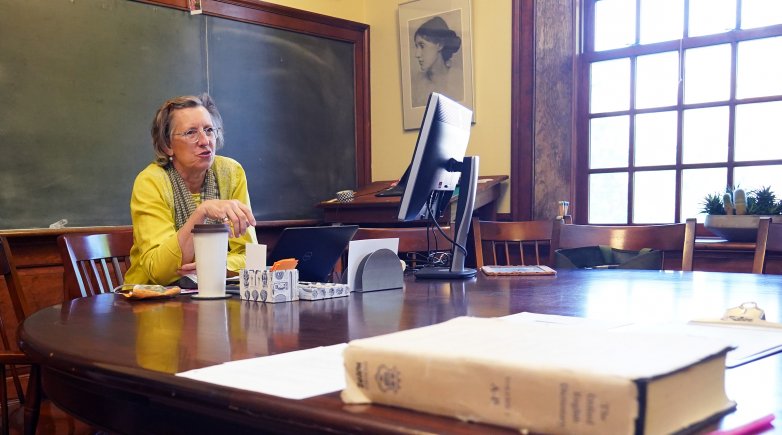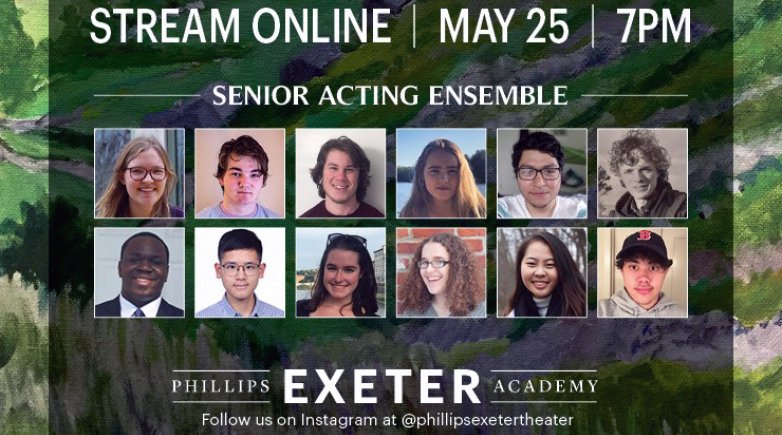Perry always dreamed of helping others through scientific research. “He wanted to find a cure for sickle cell,” Jonah says. Their younger sister had the trait and while it was not grave, young Perry recognized that it was a disease that negatively affected millions of Black people around the globe.
“He was a big, bold thinker who wanted to use his smarts to change the world,” Jonah says. “It’s the values we were raised with. We didn’t just go to private school and work hard in school to get A’s and attend Ivy League colleges so that we could make money and become famous — for us, it was about helping our family and the Black community move forward.”
Perry was not only a kind heart, he was also brilliant. Friends and classmates say he would have blazed new trails in anything he chose to focus on, whether it was science, business, art, social justice or politics. “With his intelligence, big personality, competitive nature and desire to improve people’s lives, in particular Black and BIPOC, I have no doubt that Eddie would have become mayor of New York City if he wanted to,” Julio Peterson ’86 says. “He had everything going for him.”
Retired English Instructor David Webber recalls an astute student. When the class read Shakespeare’s King Lear, Webber says, Perry chose to examine a line uttered by Lear’s daughter, Cordelia: “No cause, no cause.” “In Eddie’s case, this focus of the line was about honesty, about not pretending to feel what you weren’t feeling because there was social or conventional pressure to do so,” Webber says. “It seemed to me to fit with what I knew of him.”
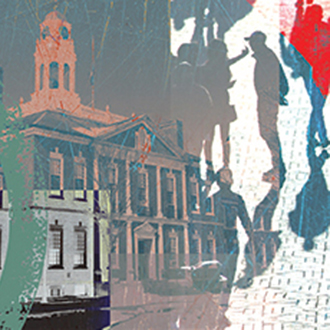
“At Exeter there are hundreds of kids who are ridiculously awesome,” says Michael Eberstadt ’85, a fellow New Yorker. “But Eddie was one of those wicked smart kids who was extra ridiculously awesome — his energy, politics, his willingness to mix it up in a positive way. It’s not easy when you’re a teen; you have a lot of things on your mind: school, girls and sports. He was admirable.”
When Perry walked into a room, friends recall, people focused on him pretty quickly because he had a lot to say. Sometimes this brash directness would rub people the wrong way. But the gangly teen’s big and honest personality also showed itself in a more nuanced way. “A lot of times he would sit back and observe to see if the conversation was worth his time,” Marshall says. “He was also very patient with the whiteness of the school and the microaggressions he experienced, even when the ignorance was coming from a friend.”
Marshall recalls a time when he was in his room with Perry and they were getting ready to go to Grill and Perry was putting Vaseline on his arms. “I asked him if Vaseline is what Black people use to moisturize their skin,” Marshall remembers. “Eddie looked up and responded, ‘I don’t know if all Black people use Vaseline, Kennett, it’s what I use.’ I asked a stupid question and he gave me a straight-up answer. I always appreciated that about Eddie.”
Perry spent his upper year in Spain and friends say the experience transformed him. Peterson, who shared Perry’s love of hoops and books, remembers that even though Spanish was his own first language, Perry spoke it better than he did. “Eddie’s Spanish was flawless; he loved reading Borges and Márquez,” he remembers. “Spain changed him. He came back understanding that he was part of a large Black diaspora. Spain for him was like when Malcolm X went to Mecca — he returned with an understanding of himself as a young Black man in the world and that his story was bigger.”
Witnessing the diversity of the people in Spain — ethnically, racially, culturally — coupled with convenient access to cities like Barcelona, it was as if a new, bigger world was now open to Perry. “I sensed that he felt accepted and cared for by the hosting family and he immersed himself in learning the Spanish language and culture there,” Andre Francois ’86 says. “He spoke about how much he enjoyed the food and the language, how he frequented the city often and the fun he had and how he missed the family who hosted him, especially their young child.”
Chris Fuller ’85, who got to know Perry when the two played pickup basketball at Love Gym, remembers how much it meant for Perry to go overseas, especially as a student receiving financial aid. “Going away gave him a peek beyond the duopoly of life, beyond what he had experienced: single mom, living in Harlem, white rich kids in white school in New Hampshire,” Fuller notes. “That was a tough dichotomy. Going to Spain opened up a different perspective, a different lens. He came back with a very mature look on all this and a reaffirmed commitment to have an impact on life and that he had to push that.”
Fuller also remembers the provocative speech Perry recited at a schoolwide assembly his senior year, “I Am a Black First,” which examined the Black student experience at Exeter and in America. “I am at Exeter, not to be like you, nor to prepare myself to enter your society as a Roy Wilkins or a James Meredith,” Perry said. “This school’s efforts to prepare me for that type of role in tomorrow’s world are futile. That no longer offers effective leadership for change, because it is based on the theory that a Black leader should strive for assimilation of the Black masses. Assimilation is no longer the solution, though. Civil rights, as a movement, is dying. My most effective role in tomorrow’s society will be to lead the advancement of Black power; and I, the New Black, dedicate my life to that role.”
The relentlessly honest speech shocked many students in attendance and served as a scorching rebuke of the racial inequality and insensitivity Perry felt on campus. At the end, Perry revealed he did not pen the words he had just read. The speech was originally written and delivered in chapel on March 4, 1968, by another Black student, Theophus “Thee” Smith ’69. “It was quite a powerful speech that reminds you that things hadn’t changed a lot,” Fuller says.
That assembly is emblazoned in Eberstadt’s memory as well. “Eddie’s salient point [was] that the particular challenges faced by an earlier generation of African-American students were still being faced today,” Eberstadt says. “I was so proud of Eddie. He had come into his own sense of power and self. It was awesome to see.”
“When it really came down to it,” Marshall says. “Perry was just a kid most of the time he was at Exeter. He was there from age 13 to 17, graduated, and was killed when he was still just 17.”
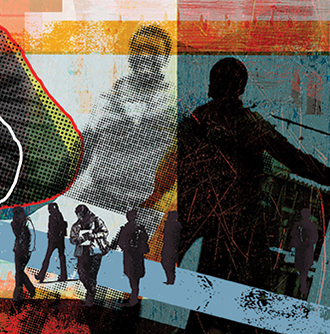 “I could not believe the number of PEA students that attended his funeral,” Francois says. “When the ceremony was over, I remember the lack of closure. This was not how Eddie’s story was supposed to turn out.”
“I could not believe the number of PEA students that attended his funeral,” Francois says. “When the ceremony was over, I remember the lack of closure. This was not how Eddie’s story was supposed to turn out.”
Friends insist that Eddie’s story and tragic ending continue to offer lessons for the Academy and the country. “I say this as a white man,” Marshall says. “The time has come to recognize the pervasiveness of structural racism and to recognize how horribly people of color are still treated not only by police, but by so many legislators, judges, business leaders, and ordinary racist or clueless or silent members of our society. It’s the difficult conversation that Eddie would want us to have.”
Marshall hopes that today’s students are encouraged to read and write about Perry — to examine, to go deep as Perry did — and look at him in context of what has gone on over the past few months in our nation and since 1619, when the first African slaves arrived in mainland North America.
“Eddie was ‘woke’ as a 13-year-old at Exeter,” Marshall says. “He spent years trying desperately to express his view of how bad things were for ‘his people’ in American society, to awaken the promising young minds at Exeter to the injustice that he lived and knew to be reality. He spoke out constantly about injustice in a very direct way, and he was in large part ostracized and criticized for it by not only many students but by faculty and later journalists who should have known better.”
To ensure Perry’s legacy continued to touch the lives of Exonians in very tangible ways, a group of his classmates — including Eberstadt, Fuller and Stephanie Neal-Johnson ’85 — came together at their five-year reunion to create a fund in his memory. The Eddie Perry ’85 Fund, established in 1991, was designed to provide aid to a Black senior who demonstrated leadership. Over the years, the fund has grown to support additional students of color from low-income families, providing for everyday items that other scholarships don’t address but are quite necessary. “It’s not super glamorous,” explains Stephanie Bramlett, Exeter’s director of equity and inclusion, who helps distribute the fund, along with the dean of the Office of Multicultural Affairs. “The things we help students with are small, but significant, like a coat to make it through harsh New Hampshire winters, eyeglasses, or repair services for broken laptops,” she says. “Sometimes it seems random, but the quality of the fund is that we fund the basics so that students can compete intellectually at the table.”
Eberstadt is passionate about the fund and the myriad ways it can improve the lives of individual BIPOC students as well as the Exeter community as a whole. “The money has been well used over time and last year we endowed the fund,” he says. “The relevance of Eddie Perry — from a political and historical perspective — is that he is a part of the horrific 400-year-old American narrative of racism.”
Eberstadt has been following closely the Black@Exeter Instagram page — an independent, non-Academy account where Black students and alumni are sharing personal stories of racism they experienced on campus and in the town of Exeter. “This is not the proverbial few bad apples at Exeter; Black and brown students who have been accepted are fully entitled to having an experience at Exeter that is challenging and interesting, but not miserable in a racial way,” Eberstadt says. “Clearly the experience of Black students at Exeter is different than the white students and the time for a reckoning and real change is here.”
He points out that successful institutions are the ones that face racism head-on. “This is going to be messy — heads will roll, people will get angry — but this is what happens when you wrestle with the truth and the past,” Eberstadt says. “I hope that Exeter will have the wherewithal and steadiness to take their lumps, accept that they deserve their lumps, and work to fix the school. This is clearly the moment for systemic change to happen.”
When the nation saw the George Floyd video, he says, they knew Floyd did not have to die, and neither did Perry. “Even without a video and even if the specifics of the events are different, I always have had the same basic feeling with Eddie’s death — it should not have happened,” Eberstadt says. “And, it did happen precisely because Eddie was Black. This never would have happened to me. And that difference is the heart of the matter. Lynching, Jim Crow, mass incarceration, police brutality — it’s all the same thing. And it all happens to Black people. At Exeter, I believe that all students and faculty should learn both about Eddie Perry as well as the overall American history of race. The result will be a more empathic school for everyone.”
“Eddie was interested in engagement; he challenged us to go deeper,” Thomas says. “This quality feels rare. Questions that ask, ‘Why?’ get to the core. Eddie would want us to rewind and ask why.”
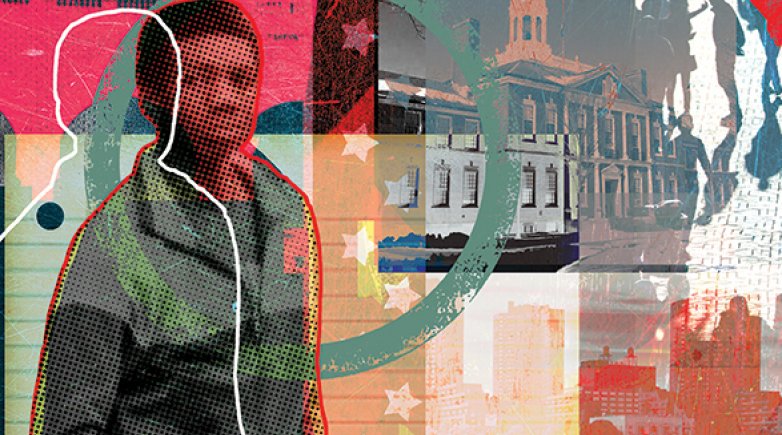

 “I could not believe the number of PEA students that attended his funeral,” Francois says. “When the ceremony was over, I remember the lack of closure. This was not how Eddie’s story was supposed to turn out.”
“I could not believe the number of PEA students that attended his funeral,” Francois says. “When the ceremony was over, I remember the lack of closure. This was not how Eddie’s story was supposed to turn out.”
